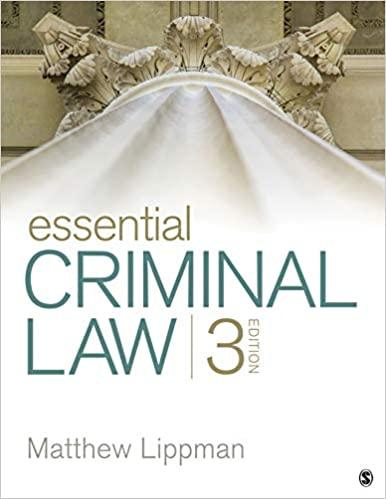Question
Gary is the owner of a scallop boat. In 2010, Gary leased the vessel to his cousin, Sam, for 10 years at an annual rental
Gary is the owner of a scallop boat. In 2010, Gary leased the vessel to his cousin, Sam, for 10 years at an annual rental of $10,000. In 2012, it became apparent that scallop numbers were declining, and Sam soon realised that he would be unable to meet the annual rental charge unless the catch improved. He approached Gary and advised him of his fishing and financial difficulties. He also complained that the engine in the scallop boat was not as powerful as he had been led to believe. Gary denied that he had ever made any promises or statements about the engine power. However, he said that he was prepared to halve the annual rental until the catch improved and, accordingly, the rental charge was reduced to $5000. Gary signed a document to this effect.
In 2015, the catch improved to such an extent that Sam is able to resume paying $10,000 a year. Gary was delighted and advised Sam that not only did he have to pay $10,000 a year until 2020, but also the $15,000 forgone by Gary in the previous three years. Sam argued that he shouldn't have to pay the $15,000 because he relied on Gary's promise. Gary refuted the promise cannot be enforceable, because part-payment of the debt as final discharge cannot be good consideration.
Advise Sam whether he must pay the $15,000 claimed by Gary.
Step by Step Solution
There are 3 Steps involved in it
Step: 1

Get Instant Access to Expert-Tailored Solutions
See step-by-step solutions with expert insights and AI powered tools for academic success
Step: 2

Step: 3

Ace Your Homework with AI
Get the answers you need in no time with our AI-driven, step-by-step assistance
Get Started


